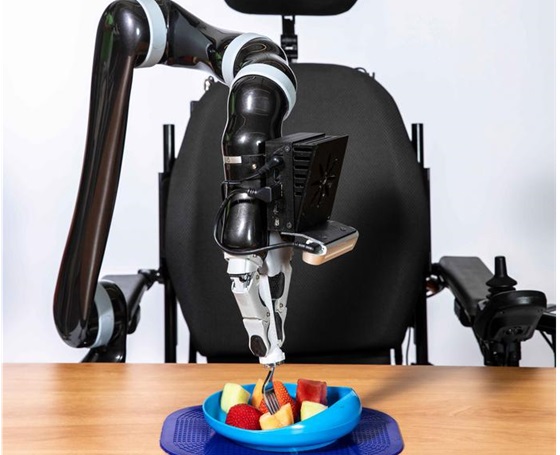At the University of Washington, a team of researchers has developed a robotic arm capable of performing a set of 11 actions, enabling it to pick up a wide variety of foods with a fork. This technology represents a significant step in the field of assistive robotics, particularly in addressing the challenges of feeding individuals who cannot eat independently.
The robotic system, which was presented at the 2023 Conference on Robotic Learning in Atlanta, has undergone various iterations since its initial development. Initially, the system was capable of picking up fruits and vegetables and delivering them directly to a person’s mouth. The current version, however, can handle a broader range of foods, including mashed potatoes, noodles, fruit salads, and pre-cut pizza.
Researchers focused on the trajectories and force required for picking up different types of food. By studying how people pick up food, the team identified 11 key trajectories that enable the robot to handle various food items efficiently.
Challenges and Future Directions
Ethan K. Gordon and Taylor Kessler Faulkner, co-lead authors of the study, along with co-author Amal Nanavati, discussed the challenges and future directions of their research. One of the primary objectives is to personalize the robot for individual users, taking into account their unique physical and social needs. The team is exploring ways to allow users to customize the robot’s behavior to adapt to their specific eating habits and preferences.
The research also addresses the social and emotional aspects of assistive feeding. The team emphasizes the importance of fostering independence for people with physical mobility limitations. They also highlight the broader implications of such technology for temporary disabilities and the aging population.
Funding and Collaborative Efforts
The research was partially funded by the National Science Foundation, the Office of Naval Research, and Amazon. Additional co-authors include Ramya Challa and Bernie Zhu. The project’s success demonstrates a collaborative effort in advancing assistive technologies and highlights the potential for improving the quality of life for individuals with various eating challenges.

